#Asian identity
Text
OPINION: Why I think Transformers Earthspark will be remembered as one of the best Transformers shows of all time.
Long story short, Earthspark spoilers. Don't read if you don't want to be spoiled.
I'm delighted to say that Earthspark has again exceeded my expectations. Honestly, when the show was first announced, I expected it to be a TV show meant to pander to young children. It would either be silly or forgettable.
Nope.
The show has blown all expectations out of the water through its bold story-telling and animation. The characters all feel realistic- they have strengths and flaws, which are most apparent when they face difficult situations. Another strength is that this show is not afraid to tackle issues (war, moral issues- "how far are we willing to go for the sake of peace?", discrimination, etc) that have become a part of our society in the present and past several years.
In the new 8 episodes dropped, the central theme appears to be identity. Mainly about finding your identity (ex: finding an alt-mode), making up parts of your identity (ex: finding the right alt-mode that matches each character), and integrating new experiences into your identity (ex: Megatron's decision to gain an Earth-based alt-mode to earn the Autobots' trust)- those sort of topics. These are all important and wonderful topics to discuss and share in a show. However, what surprised me the most was that the writers were not afraid to show the ugly sides of identity-related topics.
The 17th and 18th episodes- "Home Part I" and "Home Part II"- subtly tackle racism and xenophobia. Robbie, Twitch, and Hashtag are visiting Robbie's friend in a skateboard park. While having fun, they stumble upon an anti-transformers graffiti- "Transformers go home". Twitch and Hashtags are shocked and upset over this. Twitch says "This just isn't okay" because they were born on Earth and have lived there for their entire existence. However, Robbie's friend insists that their existence on Earth isn't "okay" since "Invading the Earth wasn't okay either". He's essentially telling them that they exist because of the war, which was unwanted, so therefore, their existence "isn't okay".
That scene honestly emotionally destroyed me. Before I explain why let me say a few things.
I am Korean American. The experiences/feelings I will later talk about are my own and do not fully represent the Korean American and/or East Asian communities. Our community's experiences are varied; thus, one person’s is not enough to sum them all of them.
Throughout my life, especially in the past couple of years- during the COVID-19 pandemic, I have had all of these things happen to me:
- I have been called hateful slurs.
- People have made the slanted eyes gesture to me numerous times.
- A few people have greeted me with "ni hao". (This is offensive because they automatically assume I'm from China because I'm Asian. It supports the idea that AAPI communities are one monolith. Hint: They're not.)
- Many people have asked me if I eat dog meat… (I don't. Never have.)
- Too many times, I have been told to "go back home". (I don't even remember the exact number. That's an indicator of how many times it's happened)
- In college, I have had many academic and career advisors ask if I'm a foreign student. It doesn't appear be an offensive question, but if I were Caucasian, no one would have thought to ask me if I was a foreigner. But no, I am Asian, so there is a huge chance that I might not be American.
The fact that I am Asian, or Korean American, an ethnicity (Korean) not found in the Americas, is enough of an excuse to question my identity and my entire life - who I am, where I'm from, and my own habits. To many, it is an excellent excuse to ensure I feel like an outsider in my own home.
The "Transformers go home" scene destroyed me because it reminds me of the pain that comes from the fact that there will always be people who believe I do not belong in my own country- no matter how many experiences I have had and how ingrained they are in me.
These characters are experiencing that same pain, too, even when they shouldn't be. The insistence from Robbie's friend that their experiences aren't enough to explain their belonging to Earth because they are physically Cybertronian- or transformers- is especially heartbreaking.
However, Robbie stands up for his family and breaks ties with his friend. He refuses to accept the blatant discrimination his siblings are facing and leaves instead. This is significant because while the writers show the ugly side of human society, they also show how to combat it- by refusing to stand by and accept it.
This scene is likely why Earthspark will become and will be remembered as one of the best Transformers shows ever.
It's not just the animation or the stories/plots. It is the show's willingness to tackle issues that are difficult to discuss in real life.
In a world where Anti- Asian, Anti- Latino, Anti- LGBTQIA sentiments and (basically) any hate toward minority groups are on the rise, Earthspark is not afraid to go head-on with these issues. They are willing to show scenes to demonstrate the harm these ideas and beliefs can cause, as well as solutions on how to fight them.
The show embraces the beautiful sides of humanity- friendship, family, love, and hope- but is also not afraid to fight the ugly parts of it too.
Written by: CK17088
#transformers#transformers earthspark#ck17rambles#opinion#tf earthspark spoilers#earthspark#earthspark spoilers#if you read all of this thank you#aapi#Asian identity#if you read all of this I have respect for you#i wrote this at 3am#i seriously need to go to sleep#why am I writing all of these hashtags#transformers have taken over my brain#the flowers in the other episode has annihilated my emotions#I seriously really need to go to sleep#tf earthspark#I love this show too much#honestly if you want share your own thoughts on this scene#just be respectful to each other please
146 notes
·
View notes
Text
Bling Empire: New York Season 1 | Official Teaser | Netflix
Bling Empire: New York Season 1 | Official Teaser | Netflix
Meet a fresh group of wealthy, sophisticated and hilarious Asian-Americans from New York City, where the quality of real estate is measured by address, not acreage. Conversations are direct, not coded. And competition – for love, for money, and for power – is fierce. Billionaires, CEOs, and fashion icons – it’s a city where you can be anything you want to be.
SUBSCRIBE:…
View On WordPress
#Addictive#Asian Identity#Bling Empire#Docu-Soap#friendship#Humorous#Netflix#Rivalry#Slice of Life#Soapy#Trailer#TV Reality
0 notes
Text
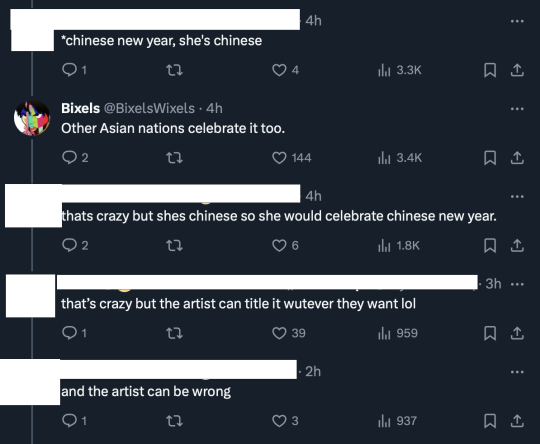
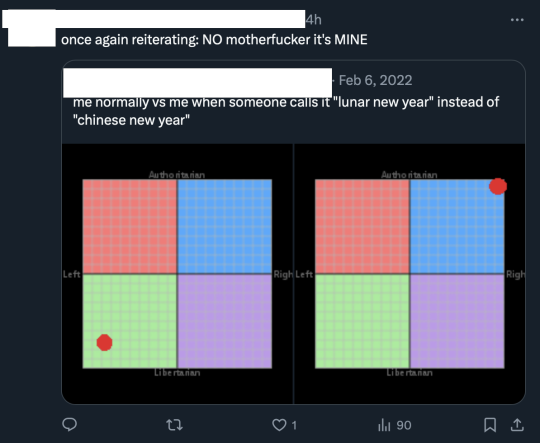
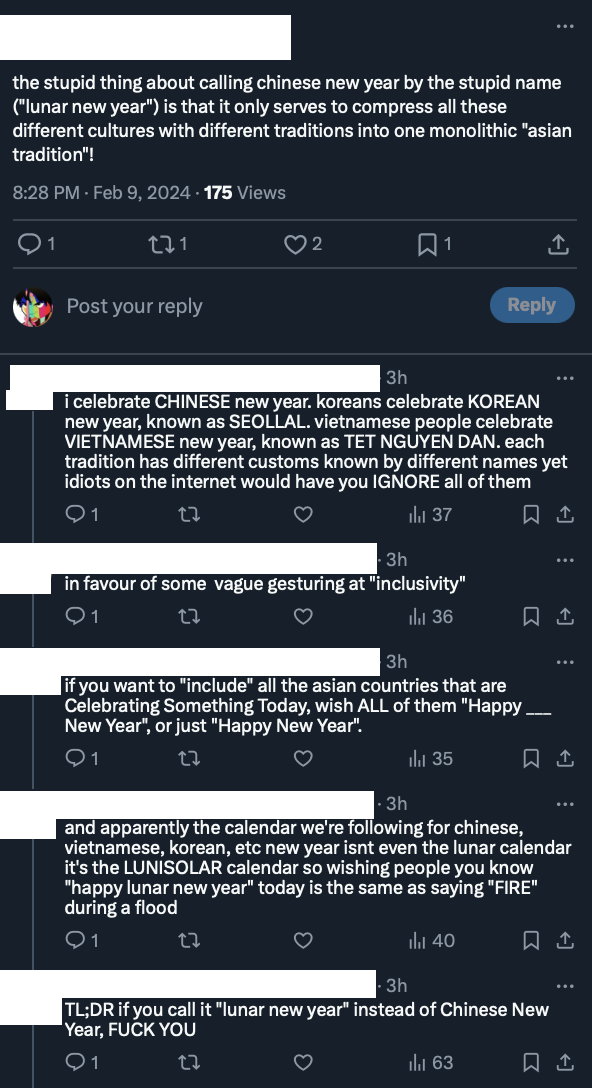
Jesus man, relax.
#this was in response to me saying “lunar new year” on the rarity art#personal#delete later#what in insane nonproblem to get this angry about#i asked my parents (taiwanese immigrants) about this and they said we use either but prefer lunar new year#because it's inclusive to koreans and vietnamese people who celebrate on the same day#lunar new year is an umbrella term same as “happy holidays.” this person is basically getting mad i said happy holidays instead of#merry christmas.#my family and i identify more as taiwanese than chinese so. we're not gonna say chinese new year much anyways#i sent this to my mom btw and she replied with basically “die mad i guess.” love you ma#this literally doesn't matter anyways i could have said “chinese new year” to caption that post and it wouldn't have mattered#the only reason i didn't is because i plan on drawing another art including carol (coco pommel) who's korean and celebrates the same day#like. most people in china/taiwan don't care they just say “happy new year” cuz it's the fuckin new year. someone saying lunar new year is#not erasure it's not flattening asian identities into a monolith. it's just an umbrella term.#anyways happy lunar new year happy chinese new year happy tet happy spring festival happy seollal#like i cannot stress enough to you guys that these holidays are on the exact same day and celebrate basically the same exact thing.#this is not an issue.
1K notes
·
View notes
Text
Sri Lankan Fairies and Senegalese Goddesses: Mixing Mythology as a Mixed Creator
[Note: this archive ask was submitted before the Masterpost rules took effect in 2023. The ask has been abridged for clarity.]
@reydjarinkenobi asked:
Hi, I’m half Sri Lankan/half white Australian, second gen immigrant though my mum moved when she was a kid.
My main character for my story is a mixed demigod/fae. [...] Her bio mum is essentially a Scottish/Sri Lankan fairy and her other bio mum (goddess) is a goddess of my own creation, Nettamaar, who’s name is derived from [...] Wolof words [...]. The community of mages that she presided over is from the South Eastern region of Senegal [...] In the beginning years of European imperialism, the goddess basically protected them through magic and by blessing a set of triplets effectively cutting them off from the outside world for a few centuries [...]
I was unable to find a goddess that fit the story I wanted to tell [...] and also couldn’t find much information on the internet for local gods, which is why I have created my own. I know that the gods in Hinduism do sort of fit into [the story] but my Sri Lankan side is Christian and I don’t feel comfortable representing the Hindu gods in the way that I will be this goddess [...]. I wanted to know if any aspect of the community’s history is problematic as well as if I should continue looking further to try and find an African deity that matched my narrative needs?
I was also worried that having a mixed main character who’s specifically half black would present problems as I can’t truly understand the black experience. I plan on getting mixed and black sensitivity readers once I finish my drafts [...] I do take jabs at white supremacy and imperialism and I I am planning to reflect my feelings of growing up not immersed in your own culture and feeling overwhelmed with what you don’t know when you get older [...].
I’m sorry for the long ask but I don’t really have anyone to talk to about writing and I’m quite worried about my story coming across as insensitive or problematic because of cultural history that I am not educated enough in.
Reconciliation Requires Research
First off: how close is this world’s history to our own, omitting the magic? If you’re aiming for it to be essentially parallel, I would keep in mind that Senegal was affected by the spread of Islam before the Europeans arrived, and most people there are Muslim, albeit with Wolof and other influences.
About your Scottish/Sri Lankan fairy character: I’ll point you to this previous post on Magical humanoid worldbuilding, Desi fairies as well as this previous post on Characterization for South Asian-coded characters for some of our commentary on South Asian ‘fae’. Since she is also Scottish, the concept can tie back to the Celtic ideas of the fae.
However, reconciliation of both sides of her background can be tricky. Do you plan on including specific Sri Lankan mythos into her heritage? I would tread carefully with it, if you plan to do so. Not every polytheistic culture will have similar analogues that you can pull from.
To put it plainly, if you’re worried about not knowing enough of the cultural histories, seek out people who have those backgrounds and talk to them about it. Do your research thoroughly: find resources that come from those cultures and read carefully about the mythos that you plan to incorporate. Look for specificity when you reach out to sensitivity readers and try to find sources that go beyond a surface-level analysis of the cultures you’re looking to portray.
~ Abhaya
I see you are drawing on Gaelic lore for your storytelling. Abhaya has given you good links to discussions we’ve had at WWC and the potential blindspots in assuming, relative to monotheistic religions like Christianity, that all polytheistic and pluralistic lore is similar to Gaelic folklore. Fae are one kind of folklore. There are many others. Consider:
Is it compatible? Are Fae compatible with the Senegalese folklore you are utilizing?
Is it specific? What ethnic/religious groups in Senegal are you drawing from?
Is it suitable? Are there more appropriate cultures for the type of lore you wish to create?
Remember, Senegalese is a national designation, not an ethnic one, and certainly not a designation that will inform you with respect to religious traditions. But more importantly:
...Research Requires Reconciliation
My question is why choose Senegal when your own heritage offers so much room for exploration? This isn’t to say I believe a half Sri-Lankan person shouldn’t utilize Senegalese folklore in their coding or vice-versa, but, to put it bluntly, you don’t seem very comfortable with your heritage. Religions can change, but not everything cultural changes when this happens. I think your relationship with your mother’s side’s culture offers valuable insight to how to tackle the above, and I’ll explain why.
I myself am biracial and bicultural, and I had to know a lot about my own background before I was confident using other cultures in my writing. I had to understand my own identity—what elements from my background I wished to prioritize and what I wished to jettison. Only then was I able to think about how my work would resonate with a person from the relevant background, what to be mindful of, and where my blindspots would interfere.
I echo Abhaya’s recommendation for much, much more research, but also include my own personal recommendation for greater self-exploration. I strongly believe the better one knows oneself, the better they can create. It is presumptuous for me to assume, but your ask’s phrasing, the outlined plot and its themes all convey a lack of confidence in your mixed identity that may interfere with confidence when researching and world-building. I’m not saying give up on this story, but if anxiety on respectful representation is a large barrier for you at the moment, this story may be a good candidate for a personal project to keep to yourself until you feel more ready.
(See similar asker concerns here: Running Commentary: What is “ok to do” in Mixed-Culture Supernatural Fiction, here: Representing Biracial Black South American Experiences and here: Am I fetishizing my Japanese character?)
- Marika.
Start More Freely with Easy Mode
Question: Why not make a complete high-fantasy universe, with no need of establishing clear real-world parallels in the text? It gives you plenty of leg room to incorporate pluralistic, multicultural mythos + folklore into the same story without excessive sweating about historically accurate worldbuilding.
It's not a *foolproof* method; even subtly coded multicultural fantasy societies like Avatar or the Grishaverse exhibit certain harmful tropes. I also don't know if you are aiming for low vs high fantasy, or the degree of your reliance on real world culture / religion / identity cues.
But don't you think it's far easier for this fantasy project to not have the additional burden of historical accuracy in the worldbuilding? Not only because I agree with Mod Marika that perhaps you seem hesitant about the identity aspect, but because your WIP idea can include themes of othering and cultural belonging (and yes, even jabs at supremacist institutions) in an original fantasy universe too. I don't think I would mind if I saw a couple of cultural markers of a Mughal Era India-inspired society without getting a full rundown of their agricultural practices, social conventions and tax systems, lol.
Mod Abhaya has provided a few good resources about what *not* to do when drawing heavily from cultural coding. With that at hand, I don't think your project should be a problem if you simply make it an alternate universe like Etheria (She-Ra and the Princesses of Power), Inys (The Priory of the Orange Tree) or Earthsea (the Earthsea series, Ursula K. Le Guin). Mind you, we can trace the analogues to each universe, but there is a lot of freedom to maneuver as you wish when incorporating identities in original fantasy. And of course, multiple sensitivity readers are a must! Wishing you the best for the project.
- Mod Mimi
#asks#multiracial#multicultural#south asian#sri lankan#senegalese#west african#identity#representation#worldbuilding#fantasy#mythology#folklore#fairies#deities#adoption#identity issues#mixed experiences#coding
538 notes
·
View notes
Text
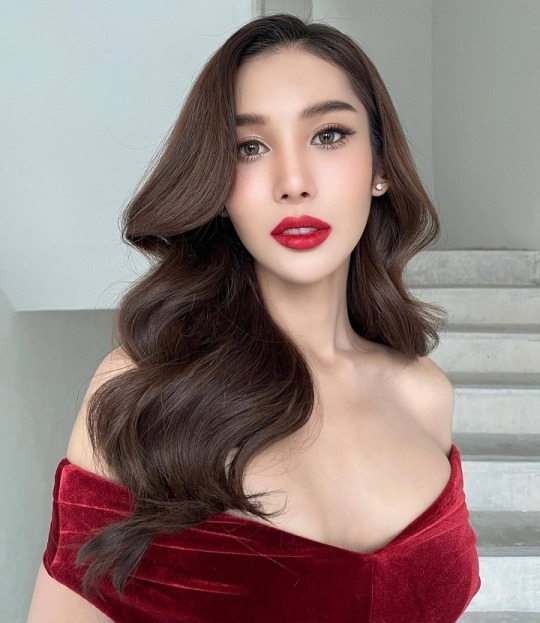
Meepooh Wasita: Just a amazing transgender woman from Thailand wearing a smashing red dress! And her hair...OMG is absolutely perfect! Her makeup is perfect too.
#trans#transgender#queer#transgirl#trans pride#asian twink#lgbtqia#asian transgirl#asian trans beauty#lgbtlove#transgenderwoman#transfem#trans community#cisgender#gender identity#gender envy#fluid gender#gender stuff#genderfluid#neopronouns#trans tag#gender presentation#gender expression#trans model#trans moment#trans are beautiful#cute trans#nsft trans#trans are women#trans bottom
275 notes
·
View notes
Text
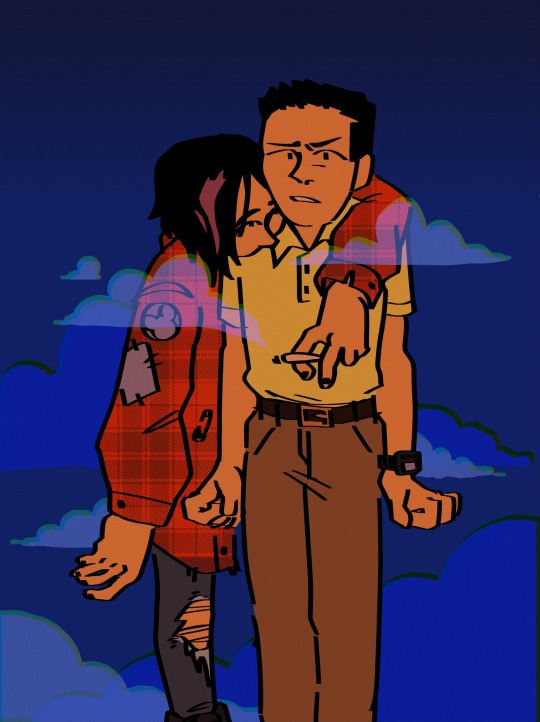
smoke lingers
#i think abt him and i go insane#something something absence of the person you used to be#nick close#nicholas foster#nick foster#nicky foster#narcolas#nicky swift#nicky freeman#< this guy can fit so many identity crisises#dndads#dungeons and daddies#kiddads#art#fanart#cw substance use#asians w/ identity issues n complex family dynamics how we feelin!!! (bad)#personal favs#close foster swifts
597 notes
·
View notes
Text
Why the FUCK didn't Sasha apologize to Quinni.
#no im so pissed about that.#dude you don't give an autistic person a meltdown that big over something that hurtful#and just#walk away scot free#last time someone gave me a meltdown that hardcore I cut them off for a month.#that might just be the bpd tho#but still#quinni doesn't seem like the type to just. be chill without an apology and hearing sasha explain herself#and then she makes her her vice??????????#she already acknowledged sasha is only in it for the power trip#sasha didn't even do anything in the investigation she just followed quinni around#which as she should#but she hasn't made up for how she treated quinni AT ALL#in fact she's just gotten MORE of a performative activist#like why the fuck was she such a bitch to missy abt spider#i get it yea. ur friends sometimes have dogshit taste in men but you don't need to make them feel like trash abt it#and the way she was like 'he fetishizes u for being black omg its probably asian girls next omg i dont feel safe'#THIS ISNT ABOUT YOU????????.#also she 100% jumpstarted quinnis identity crisis#with how she was constantly switching between infantilizing her and undermining her autonomy over her own decisions#and treating doing things quinni wanted to do and the specific way she needed to do them as a chore#and then victimizing herself!!!!!!!#like from experience that relationship dynamic IS abusive to autistic people it just is#idk if nt people get it but it's really fucking awful to come from your partner#anyway. until sasha apologizes to both quinni and missy this will continue to be a sasha hate page.#heartbreak high#heartbreak high season 2#quinni gallagher jones#sasha so#missy beckett
71 notes
·
View notes
Text
On a scale from Avatar the Last Airbender (“what adaptation?”) to Lockwood and Co (“nearly word-perfect dialogue, the only changes were slight and were certified improvements if anything”) how good was the adaptation of your fave original content?
*Shadow and Bone is the middle ground for (“Substantial changes were made to the original, but I don’t even care cuz goddamn this shit slaps.”)
Asking for SCIENCE.
#avatar the last airbender#lockwood and co#netflix shadow and bone#grishaverse#six of crows#artemis fowl#percy jackon and the olympians#cbs elementary#bbc sherlock#bbc musketeers#harry potter#crazy rich asians#game of thrones#feel free to add on#this area is ripe for expansion#bridgerton#outlander#the bourne identity#jack ryan#james bond#shadowhunters#fate the winx saga#winx club#where on the scale do these belong?#you be the judge#crossing my fingers so hard for the pjo show to be good but the Artemis Fowl movie crushed me
846 notes
·
View notes
Text
https://april-059.mxtkh.fun/z/gjxUrqV
#HarryPotter#identity v#中村静香#tma#cuddling#black moodboard#sexy peachy bum 🍑#asian#sissy and slave#glow up#layouts#ethan dolan#leigh bardugo#gatiss wednesday#bts wallpaper
127 notes
·
View notes
Note
Aside from Lois’ interview with Superman (which your fan comic brought to life in such beautiful fashion), what other “canon events” from the story and history of the character would you want to portray in your head canon?
Thank you! I want to go into more of the Clark, Lana, Lois love triangle but I haven't zeroed in on an ideal circumstance or scene where I could squeeze the most story from for that dynamic yet. I want to write a good love triangle where it's a genuine struggle for who Clark will pick. Though out of all the ideas fighting for attention in my head, this is the least priority at the moment.
I know my Clois comics are popular and people especially want to know how Lois finds out about Superman's identity but I really don't want to speed to the post-secret identity era. People say that's where Superman gets interesting, but I personally disagree! Especially with Clois under the immigrant love story lens and Clark struggling as an alien who passes for a white-american-man, I feel like there's so much unexplored story in that dynamic before Lois knows about Superman's secret identity. And I dislike how modern Superman media speeds through the fun conflict that happens in his early years.
#askjesncin#new clois comics aren't a priority atm cuz Private Interview was massive (my 2nd most ambitious fancomic) lemme chill b4 the next one lol#re-read Sons of Mars while waiting! if u don't like me at my martian you don't deserve me at my clois#i know ppl also want me to do big dramatic canon events but like. Private Interview was special bcuz it's a scene taken for granted#all of the clois comics so far are arguably very small moments made big by how Lois' Asian American identity re-contextualizes a scene
34 notes
·
View notes
Text
Representing Biracial Black South American Experiences…Through a White/Asian Mixed Race Character in Europe
@colombinna asked:
I have a YA story that's in very early development - pre-alpha, if you will. For now what I have developed is the characters: one of the MCs is a biracial asian queer girl (her dad is thai-american and japanese, her mom's white), she has a medium/dark brown skin, and lives in a very white context in a fictional European country. The contact she has with her extended family is limited to phone calls and regular visits because her dad moved from the US to said fictional European country.
I'm a biracial black queer girl myself, living in a very white community in South America, my extended black family also lives in a different place, and I'm taking a lot of my experiences of being not white and queer whilst living in white communities into her story (the feeling of not belonging, the impostor syndrome, standing out as one of the only POC kids in class, etc) and thinking back to what I've heard asian friends and classmates say about their experiences in the same school/community context as mine. But I want to know how different her experiences as a dark-skinned asian girl would differ from mine and my friends' in a similar context (white community, small number of other asian people - and POC in general - in the social circles, and limited contact to her extended family), and what experiences could make sense if the character was biracial black like myself, but won't if she's biracial asian.
Why not write a biracial Black girl if those are the experiences you want to represent?
This MC is straddling, like, 3 different cultures. Having multiple immigrant identities in not-Europe is not the same experience as being Black in South America; while both are complex minority experiences, there are too many differences in intersections and histories to compare. Not to mention, it really depends on what European culture(s) you’re basing your not-Europe on.
I think you’ll find that the written result will ring much more genuine and rich in depth if you either translate your experiences more directly or pick a more narrow focus, instead of assuming that there is a universal for racism and colorism against biracial people that is transferable across contexts. Because there isn’t. There can be overlaps, but if you’re looking to cover the entire range of What It’s Like in general, it won’t work.
This isn’t to say that people can’t use other identities to write about specific experiences of their own, but in this case you need to think about what story you want to tell and what your reasons are. Marika’s commentary will go more into when and how this can be done effectively.
Also, if the point is to make her a dark-skinned Asian, as a white/asian mix myself, I implore you: why must you make her 1/4 Japanese and 1/2 white? Even with the Thai ethnicity thrown in, Thai people very much range in skin tone and have their own domestic issues with colorism. It’s not impossible for dark-skinned examples of your MC’s ethnic makeup to exist, but still I don’t recommend it for two reasons:
It's going to make researching people whose experiences fit that much more difficult. Most experiences of colorism, othering, and other forms of discrimination that mixed white asians tend to face are completely different from mixed race asians who tend to have darker skin & features.
There's enough Japanese & white mixed Japanese rep in the Asian rep sphere as is. Consider that this individual could be mixed Asian (not Japanese) with something else (not white)!
But again, think over your motivations. I’ll spare you the copy/paste of our Motivations PSA, but re-read it and consider. Why do you wish to write a mixed Asian character to tell the story of your experiences as a mixed Black individual instead of a mixed Black character? What does it add to the story? Is it an effective vessel for the experiences you want to convey?
~ Rina
I think Rina brings up some good points here: I’m not hearing a lot of specificity in your query. As you doubtless know firsthand, the more intersectional and complex an identity, the more of a chance the identity may come with unexpected baggage and nuances that fly in the face of what is common sense for less intersectional identities. This can make writing such characters challenging just because there is so much choice on which identity themes to emphasize.
I once spent about 15 minutes explaining to a person the thought process I used to determine when I could wear jeans depending on which country I was living in as a mixed race person who is perceived as different things in different places. It might seem trivial, but it’s actually very important to me for the purposes of identity, safety and gender presentation, so I personally think it’s interesting. But will my readers think a character’s multi-page internal monologue on whether or not to wear jeans is especially compelling? Does the writer-version of me want to research the version of myself musing on my specific jeans conundrum to that extent? Or do I want to talk about other things related to attire a lot of other people would relate to? I think those are all YMMV questions, but hopefully, they provide some perspective that will help you be intentional about how you might want to tackle something potentially very time-consuming.
When I say intentional, I mean that when covering a complex identity with which you are peripherally familiar, it will always be more effective and easier to use it to tell a specific story extremely clearly than to be extremely broad in scope and try to include almost everything about your own experiences, especially because some of those experiences might not be as relevant for your character’s background as they are to yours.
One of my favorite childhood picture books is written and illustrated by a Nikkei writer-illustrator team. The book is titled Ashok by Any Other Name (link). The story features a desi child growing up in the US who wishes he had an American name his friends and teachers wouldn’t think was strange. It covers how being othered for his name makes him feel, and how he copes with that feeling. Speaking as someone both Japanese and desi, I think through the plot device of names perceived by the majority of Americans as foreign, this book aptly shows how many immigrant/diaspora creators are capable of relating to the pressures of assimilation experienced by other immigrant, even if the creator, the audience and the story’s subject’s backgrounds all don’t completely overlap 100%.
There will be aspects of your Blackness, mixed identity, skin color, sexuality and living in a local community lacking diversity as a member of many minority groups that you will find resemble/ resonate with the experiences of mixed-race, Japanese individual in a Europe-themed setting, and I think any story that leans into those themes will be considerably easier for you to research. In other words, instead of asking us “How does my experience differ?” I would approach this issue by deciding what narrative you want to show about your own experience and then research the specific contexts within which your desired story overlaps with elements of mixed-race Japanese experiences.
- Marika.
#japanese#mixed race#biracial#black#black woman#asian women#multicultural#multiracial#pov#identity#representation#asks
388 notes
·
View notes
Text
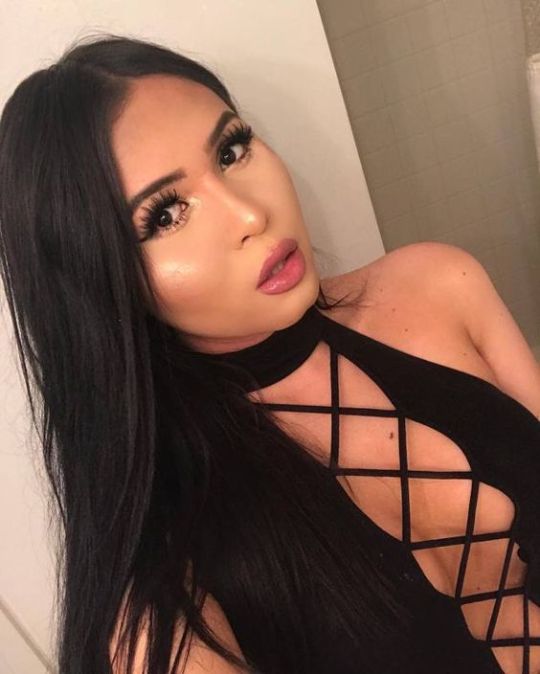
Tesa Montiel: Stunning Asian transgender woman! Love her dress! Very HOT!
#trans#trans community#transgirl#queer#trans pride#lgbtqia#transgender#transgenderwoman#transfem#cisgender#genderqueer#gender identity#cute trans#trans woman#transsexual#beautiful trans woman#mtf trans#trans are beautiful#trans are women#asian transsexual#asian transgirl#pansexual#pan#lgbtlove#trans beauty#trans bottom#trans day of vengeance#this is what trans looks like#trans fashion#trans feminine
339 notes
·
View notes
Text
Seeing fan discussions about Blue Eye Samurai and especially Mizu's identity is so annoying sometimes. So let me just talk about it real quick.
First off, I have to emphasise that different interpretations of the text are always important when discussing fiction. That's how the whole branch of literary studies came to be, and what literary criticism and analysis is all about: people would each have their own interpretation of what the text is saying, each person applying a different lens or theory through which to approach the text (ie. queer theory, feminist theory, reader response theory, postcolonial theory, etc) when analysing it. And while yes, you can just take everything the authors say as gospel, strictly doing so would leave little room for further analysis and subjective interpretation, and both of these are absolutely necessary when having any meaningful discussion about a piece of media.
With that being said, when discussing Blue Eye Samurai, and Mizu's character in particular, I always see people only ever interpret her through a queer lens. Because when discussing themes of identity, yes, a queer reading can definitely apply, and in Mizu's story, queer themes are definitely present. Mizu has to hide her body and do her best to pass in a cisheteronormative society; she presents as a man 99% of the time and is shown to be more comfortable in men's spaces (sword-fighting) than in female spaces (homemaking). Thus, there's nothing wrong with a queer reading at all. Hell, some queer theorists interpret Jo March from Little Women as transmasc and that's totally valid, because like all analyses, they are subjective and argumentative; you have the choice to agree with an interpretation or you can oppose it and form your own.
To that end, I know many are equally adamant that Mizu is strictly a woman, and that's also also a completely valid reading of the text, and aligns with the canon "Word of God", as the creators' intention was to make her a woman. And certainly, feminist themes in the show are undeniably present and greatly colour the narrative, and Episode 4 & 5 are the clearest demonstrations of this: Mizu's protectiveness of Madame Kaji and her girls, Mizu's trauma after killing Kinuyo, her line to Akemi about how little options women have in life, and the way her husband had scorned her for being more capable than him in battle.
I myself personally fall into the camp of Mizu leaning towards womanhood, so i tend to prefer to use she/her pronouns for her, though I don't think she's strictly a cis woman, so I do still interpret her under the non-binary umbrella. But that's besides my point.
My gripe here, and the thing that spurred me to write this post, is that rarely does this fandom even touch upon the more predominant themes of colonialism and postcolonial identities within the story. So it definitely irks me when people say that the show presenting Mizu being cishet is "boring." While it's completely fine to have your opinion and to want queer rep, a statement like that just feels dismissive of the rest of the representation that the show has to offer. And it's frustrating because I know why this is a prevalent sentiment; because fandom culture is usually very white, so of course a majority of the fandom places greater value on a queer narrative (that aligns only with Western ideas of queerness) over a postcolonial, non-Western narrative.
And that relates to how, I feel, people tend to forget, or perhaps just downplay, that the crux of Mizu's internal conflict and her struggle to survive is due to her being mixed-race.
Because while she can blend in rather seamlessly into male society by binding and dressing in men's clothing and lowering her voice and being the best goddamn swordsman there is, she cannot hide her blue eyes. Even with her glasses, you can still see the colour of her eyes from her side profile, and her glasses are constantly thrown off her face in battle. Her blue eyes are the central point to her marginalisation and Otherness within a hegemonic society. It's why everyone calls her ugly or a monster or a demon or deformed; just because she looks different. She is both white and Japanese but accepted in neither societies. Her deepest hatred of herself stems primarily from this hybridised and alienated identity. It's the whole reason why she's so intent on revenge and started learning the way of the sword in the first place; not to fit in better as a man, but to kill the white men who made her this way. These things are intrinsic to her character and to her arc.
Thus, to refuse to engage with these themes and dismiss the importance of how the representation of her racial Otherness speaks to themes of colonialism and racial oppression just feels tone-deaf to the show's message. Because even if Mizu is a cishet woman in canon, that doesn't make her story any less important, because while you as a white queer person living in the West may feel unrepresented, it is still giving a voice to the stories of people of colour, mixed-race folks, and the myriad of marginalised racial/ethnic/cultural groups in non-Western societies.
#blue eye samurai#mizu blue eye samurai#fandom critical#blue eye samurai meta#wank.mp3#shut up haydar#fandom.rtf#this is a bit of rant but the prevalent whiteness of fandom in general just gets on my nerves i'm sorry#giving me flashbacks to a:tla fandom fr cuz it's the same shit! people love to devalue the stories of non-white non-western identities#also to be clear i am a southeast asian living in southeast asia and similar to mizu i am often alienated for having mixed ethnic ancestry#and even for speaking english (bcs my granddad served the fuckin. british colonials. so my fam speaks mostly in english)#cuz where im from it's still extremely hegemonic racist patriarchal misogynistic homophobic like the setting in the show#so like even though the story is set in historical japan and may seem far-removed from the experiences of a US or european audience#those of us outside the west and in the global south still face a lot of the struggles that mizu goes through till this very day#so please dont just dismiss that. it feels incredibly tone-deaf#okay rant over
57 notes
·
View notes
Text
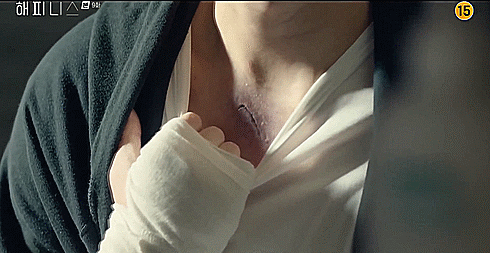

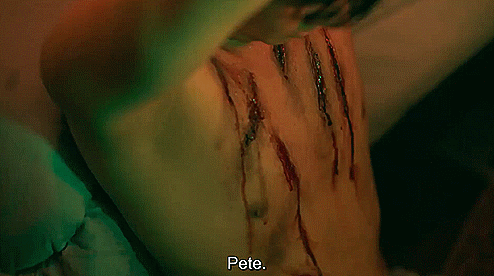

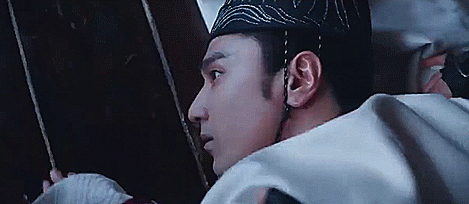
Whumptober Day 13 - Infected
Happiness - Ep. 9
Hidden Identity - Ep. 15
Kinnporsche - Ep. 11
The Glory Of Youth - Ep. 11
The Yin-Yang Master: Dream Of Eternity (2020)
#whumptober 2023#no.13#infection#happiness#hidden identity#kinnporsche#the glory of youth#the yin yang master dream of eternity#whump#kwhump#thai whump#cwhump#asian whump#gifs
74 notes
·
View notes
Text
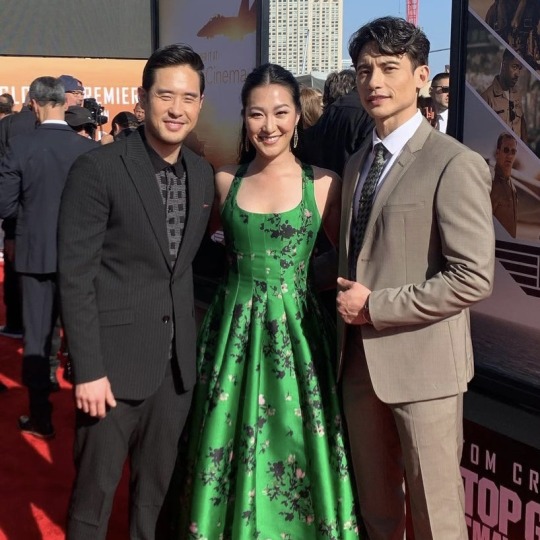

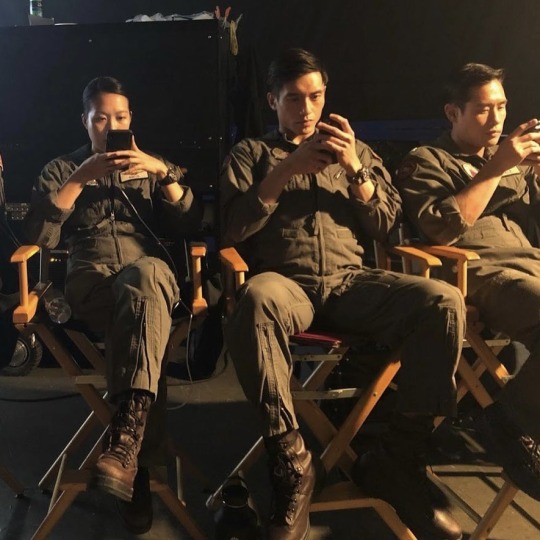


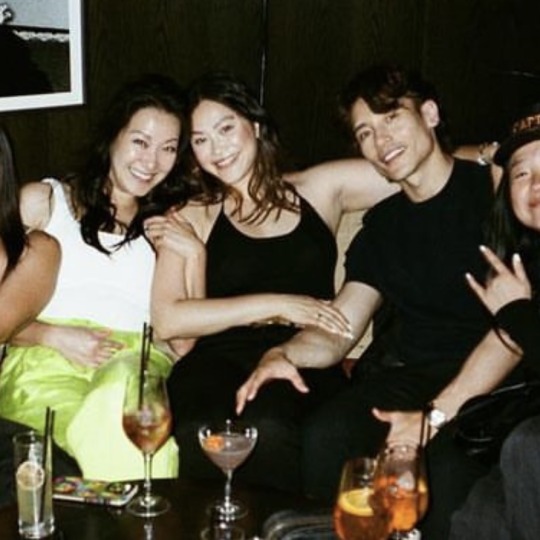


raymond kara and manny hanging out all the time because they’re bffs…. tgm writers will pay for depriving me of yale halo and fritz bestfriendism on screen.
#my family#i lost so bad yall i cant breathe sometimes#just slid down the wall with my head in my hands#FAWK#asian pilots we love u even if the movie paid u dust 😞#the fact only one of them has an asian surname#ijbol. like u couldnt even give 2 out of the 3 names that would actually reflect their identity ?? 😭#anyways#top gun maverick#tgm#kara wang#manny jacinto#raymond lee#callie halo bassett#callie halo shen#billy fritz avalone#billy avalone#logan yale lee#logan lee#top gun halo#top gun fritz#top gun yale
63 notes
·
View notes
Text
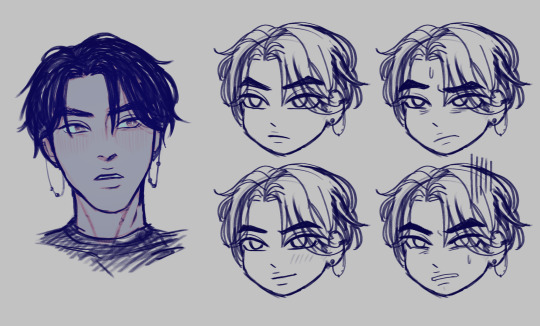
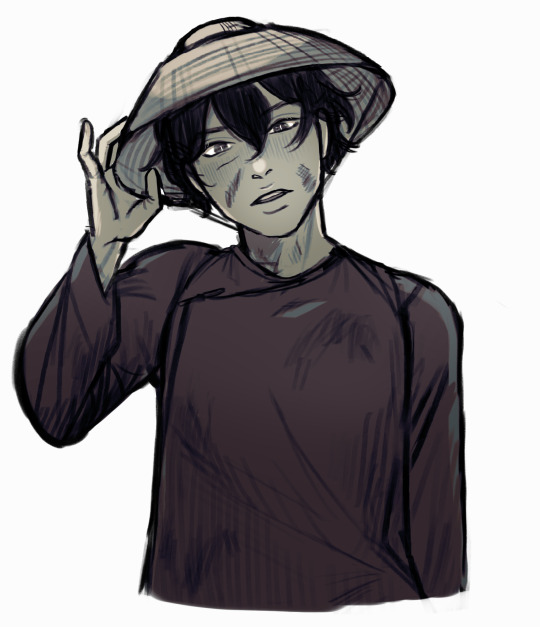
old sketches of hk (top) and guangdong (bottom) because apparently not even my chineseness is secure enough to not be othered from me when i don't follow how outsiders think we should act )-)o
#hws hong kong#aph hong kong#hws guangdong#hetalia#hws#aph#hws chinese provinces#orz its a given that people constantly take my birthright as nikkeijin away from me but my chineseness too? damn#what im saying here is that every time ive acted out of line of what people think a japanese-descent or chinese person should act#i get reduced and labeled in a way that removes those core aspects of my identity -- typically by overemphasizing my chineseness as other#or recently -- as just vaguely east asian#yowch#whether or not op knew i was chinese i was still stripped of my chinese identity in order for op to smear my art as sinophobic#it doesn't matter if they didn't know. they had to make the assumption i wasn't chinese#“because what chinese person would do such a thing?” says the orientalist#orientalism only makes the orientalist's orient true to the audience#not to know the actual orient -- which doesn't exist outside of the occidental imaginary
97 notes
·
View notes